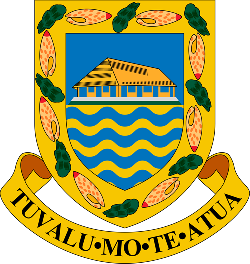Areas of Expertise
Project Status
Filter by project scope:
Project Type
Results
Project Coordinator: Mr Saamu TuiAlthough climate change is cited as the most signifigant security threat to he south pacific, its likely effects on security and potential conflict are yet to be widely explored by the international an regional organisations present on the ground. Climate change in the pacific region has the potential for a myriad of cascading fragility and instability risks. These will affect men, women and youth differently, and vary across the region both according to timeframes under consideration and depending on the country context.There are a range of critical climate fragility risks emerging in the Pacific Region that will require greater examination, monitoring and coordinated action by many stakeholders at the national, regional and international level to prevent potential irrevesible economic, social, cultural and environmental damage with a range of potential security implications and a direct impact on social cohesion. Most critical issues amongst these include:
Status: Completed
Project Coordinator: Mr Lono LeneuotiSIDS rely on small coastal aquifers for their water supply needs. These coastal aquifers are fragile thin freshwater lenses that float on the underlying denser seawater and are reliant on rainfall for recharge. These coastal aquifers are at higher risk of impact to water quality deterioration from threats including saltwater contamination from sea level rise, over abstraction, wave overtopping, loss of aquifer area through coastal erosion, and other impacts on water quality from inappropriate land-use activities. Climate change exacerbates these long-running threats to coastal aquifers through increased climate variability and climate extremes. The fragility of coastal fresh groundwater systems necessitates careful management and protection to ensure their long-term integrity and their role in climate change adaptation strategies and improved water security. The project aims at improving the understanding, use, management and protection of coastal aquifers towards enhanced water security, including in the context of a changing climate. More specifically it aims at 1) identifying the extent, threats and the development potential of groundwater resources, 2) increasing awareness of groundwater as a water security supply source, 3) providing options for improved access to groundwater and 4) and improving aquifer protection and management, within Pacific Small Island Developing States.
Status: Current
